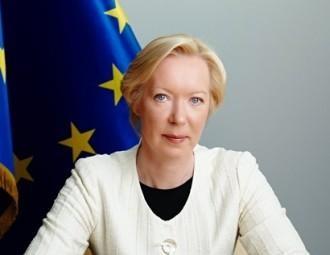Maira Mora: Modernization in Belarus is possible if Belarusans themselves are ready for it

The EU could play an important but experience-sharing role only.
No modernization is possible unless it is defined and undertaken by the Belarusan people themselves, Maira Mora, head of the European Union’s Delegation to Belarus, said in an interview with BelaPAN, commenting on the prospects for the EU’s European Dialogue on Modernization with Belarus (DoM).
“The EU, especially the 'newer' Member States who have recent experience of transition and transformation, could play an important but experience-sharing role,” Ms. Mora said.
“As initially conceived, the Dialogue on Modernization is just a stage in the preparation of a joint interim plan,” she said. “We hope we will sit down and discuss it with the authorities when the political situation permits it. We were close to doing it in the past.” The EU would like to “further familiarize the Belarusan government with the main areas of DoM, taking also into account already ongoing EU-Belarus sectoral dialogues,” Ms. Mora said. “This could potentially include consultations with the Government on issues such as justice, electoral reforms, human rights, economic governance, trade and investment issues, etc. This could help to understand better what the modernization needs of the Belarusan society are, and how the EU could support them when political circumstances allow it.”
“It is entirely up to the Belarusans if they want to use the EU's generous offer of fostering stability and prosperity via modernization,” Ms. Mora stressed.
According to her, the release and rehabilitation of all political prisoners in Belarus is a prerequisite to a dialogue between the EU and Minsk. “And once it happens, we will need to compare notes to make sure all sides agree on what modernization means,” she said. “The fact that the Dialogue on Modernization proposes EU Member States' experience in transition and transformation automatically puts first things first. In our understanding, the core element of modernization is the restructuring of the economy to secure new sources of growth and observance of Belarus' internal laws and international commitments in the areas of democracy, rule of law, respect for fundamental rights and freedoms. Again, put plainly and simply, it is impossible to modernize the economy only.”
“Belarus authorities acknowledge the need for modernization,” Ms. Mora said. “I hope they also recognize the need to modernize not only industrial assets but the society as a whole.”
-
03.01
-
07.10
-
22.09
-
17.08
-
12.08
-
30.09



























